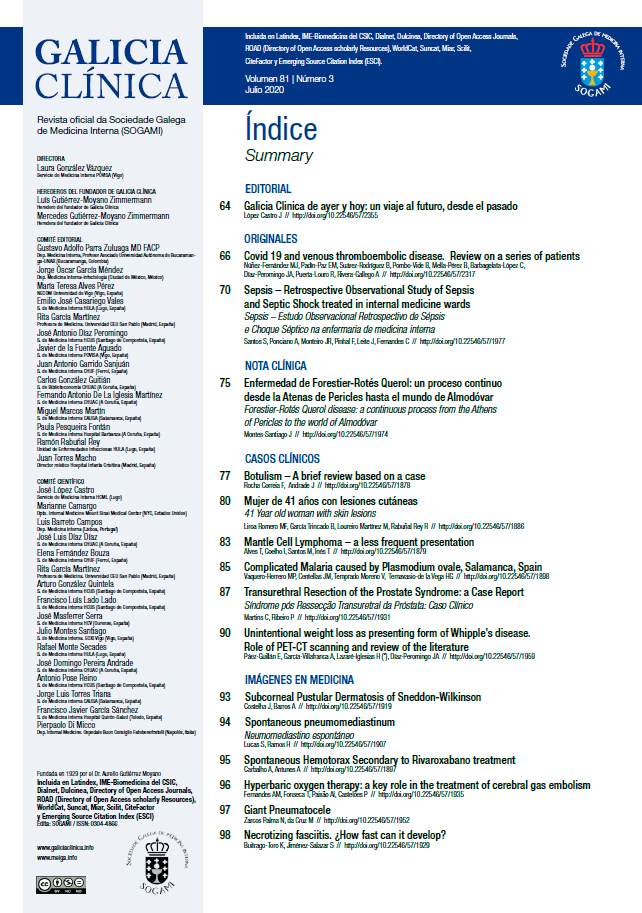Abstract
Foodborne botulism is a serious, acutely evolving disease with digestive and neurological symptoms resulting from the ingestion of various types of food containing toxins formed by Clostridium botulinum in the food itself, usually smoked meats, canned goods and preserved foods. sporadic or epidemic. In recent decades there has been an increase in its incidence in Portugal. The authors present a case report of botulism that culminated in the identification of a common origin (intake of smoked food products) for four other cases. Case: A 47-year-old patient had clinical signs of diplopia, dysphagia, fever, dizziness, blurred vision, dry mouth and constipation, and gastrointestinal complaints. History of intake of smoked product 48-72 hours before resorting to SU. Internship for study. He presented changes in EMG compatible with presynaptic neuromuscular block. It was possible to isolate the botulinum toxin in a patient's serum and in the food product. The patient recovered completely from the clinical picture only with supportive therapy and physical therapy. This case is intended to alert to this clinical entity, which is not uncommon, presents difficulties in diagnosis for those unfamiliar with the condition, emphasizing that it is essentially clinical with a suggestive epidemiological context, confirmed by typical electromyographic changes and by the identification of the toxin involved. In Portugal, only cases associated with the ingestion of type B and E toxins are described, and anti-toxin serum is not required.
This work is licensed under a Creative Commons Attribution-NonCommercial-NoDerivatives 4.0 International License.
Copyright (c) 2019 GaliciaClinica - Official Journal of the SOGAMI


